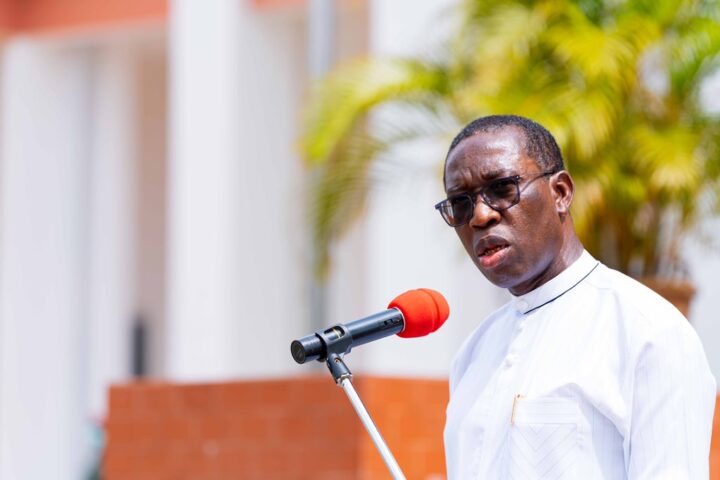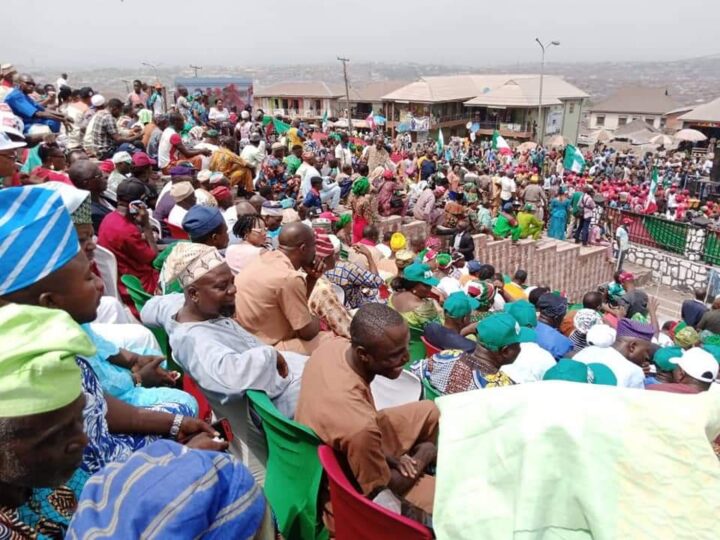BY ZAYD IBN ISAH
Armed banditry has gradually become an intractable problem in Nigeria—an overwhelming nightmare so to speak. What began as a farmers-herders conflict in 2011 has metastasized into cattle rustling, mindless abductions (many school children have been kidnapped for ransom), rape and gruesome mass killings. These roving bandits move with hundreds of motorcycles in rural areas, wielding AK-47s and operating like inspired guerrillas. Many villagers in the North–West and North Central regions have fallen victims to their violent scourges. Those still living constantly harbour fears of the unknown. Some have even fled from their homes to urban areas just for the sake of safety. Meanwhile, and contrary to what many people erroneously believe, security operatives have not just been idle like unemployed statues. Our gallant officers have been working round the clock to stall, repel and terminate these recurrent bursts of terror. This is why we must always appreciate the selfless and enormous sacrifices of those fighting for the very soul of this country.
There are a lot of conspiracy theories currently surrounding the motives of these men of the underworld. Some say they are fighting for control of resources while others reason that there is a deliberate attempt to Islamise Nigeria just like Afghanistan. This last theory is by far the most ridiculous and far-fetched. It is important to note that these banditry attacks did not just start in 2011. This particular phenomenon dates further back to the pre–Civil War era when the fledgling government of the time had faltered and soured within certain parts of the old Western region. The resultant effects were destructive incidents of political crisis and organized crime. Today, history seems to be repeating itself in several states within the North-West and North-Central regions; it might appear that we are presently being forced to confront another existential crisis—and a troubling one at that. According to official reports, about 1,100 people were murdered in 2018 in the six states of North-West Nigeria; over 2,200 were killed in 2019; and 1, 600 were killed between January and June 2020 alone. Over 247,000 people have also been displaced from their homes. The victims are mostly Muslim men, women and children which rubbishes the claim that these marauding murderers are out to Islamise the entire nation. If they are truly out to Islamise the country like the Taliban, why are they going about it by killing Muslims and destroying mosques? And if they somehow manage to decimate the Muslim population in their quest to “Islamise the country”, who will be left to practice the religion after such an agenda is completed? The answers to questions like these are blowing in the wind.
Our able security operatives have been hot on the trails of these bandits, replying fire for fire. This is necessary, especially as the enemy has become even more daring in its attacks lately. A fighter jet belonging to the Nigerian Air force came under heavy attack in Zamfara last month and crash-landed in the process. Bandits with anti-aircraft guns? Only terrorists have been known to operate anti-aircraft guns with such precision. Fortunately, the brave and well-trained pilot of the fighter jet was able to eject himself from its ruins before manoeuvring his way through thick forests to the nearest Army base—a rare act of bravery worthy of national recognition and honour.
Advertisement
And just when we thought we had seen it all with the assault on the fighter jet, Afaka happened. In one of the deadliest attacks in this nation’s history, armed bandits attacked the Nigerian Defence Academy, killed two senior officers and abducted one other. This generated mixed reactions particularly anger from Nigerians who could not fathom just how the prestigious Defence Academy proved to be so woefully penetrable. Nigerians are certainly justified in their indignation because the Academy itself ought to be a place of refuge for ordinary citizens in times of crisis. So many have come to express fears that if ragtag bandits can attack the country’s premier training grounds for promising young officers, then nowhere is safe enough.
The Afaka attack has quickly been indexed into the long and seemingly endless list of avoidable national tragedies since Nigeria’s return to democracy in 1999. One does not need a clairvoyant to tell them that these dastardly terrorists cum bandits are not out to Islamise the country, but are out to destroy it, make it ungovernable. To say that they are not terrorists is to deny the obvious. As they have crossed the rubicon, they should be given the Boko Haram treatment. This means that all hands must be on deck: we should take the islamisation agenda theory like a pinch of salt. It is easier for a camel to go through the eye of a needle than this country to be islamised. The bandits are our common enemies. Our security forces should be provided with adequate support as they go on to combat these blood-thirsty vermin.
From Boko Haram insurgency to armed banditry, terrorist attacks and secessionist agitations, these are indeed trying times for Nigeria and her armed forces. While we are praying and hoping for Nigeria to overcome these demanding challenges, the powers that be should also do the needful. Lastly, citizens should not indulge in irrational fears but recognise the enormity of these recent attacks as fair warning to desist from acts capable of driving this country further into a bottomless abyss.
Advertisement
May God help us all; Nigeria will overcome.
Zayd Ibn Isah is an officer, a law graduate and a creative writer. ‘We Are All Guilty’ is his first published book. You can reach him via [email protected].
Views expressed by contributors are strictly personal and not of TheCable.
Add a comment






